In Cuba, Medical Students Provide Door-to-door Virus Care
Student doctors in Cuba are trudging from house to house trying to identify cases of the coronavirus pandemic to stop it from spreading in the Caribbean island nation.
"How many people live here? Have you been in contact with foreigners? Do you know the health rules to follow?" they ask.
Some 28,000 students repeat the same questions dozens of times a day, all across the country.
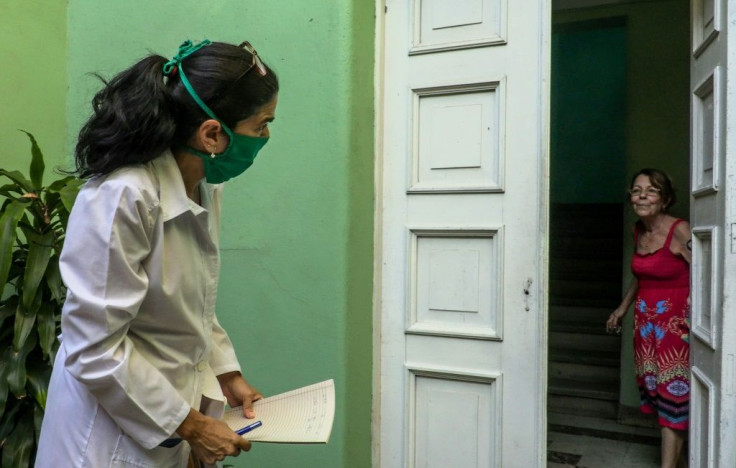
In the Vedado neighborhood of Havana, Liz Caballero Gonzalez, a 46-year-old doctor, accompanies two students charged with canvassing an area that is home to 300 families each day.
In a country where many people wear face masks -- and some shops won't allow customers in unless they have one -- the only thing that sets the students apart is their white gowns.
Crippled by six decades of US sanctions, Cuba was one of the last countries in Latin America to close its borders, desperate to keep the tourism revenue it relies on.
It finally caved on March 24 and now has 212 coronavirus cases and six deaths. As a precaution, close to 2,800 people are receiving hospital care.
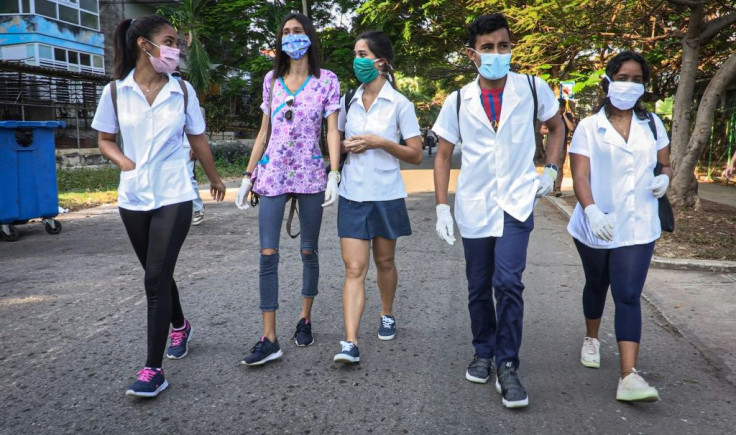
In its fight against coronavirus, Cuba is relying on its world renown health services: According to the World Health Organization the country has 82 physicians per 10,000 people, compared with 40 for Russia, 26 for the United States and 18 for China.
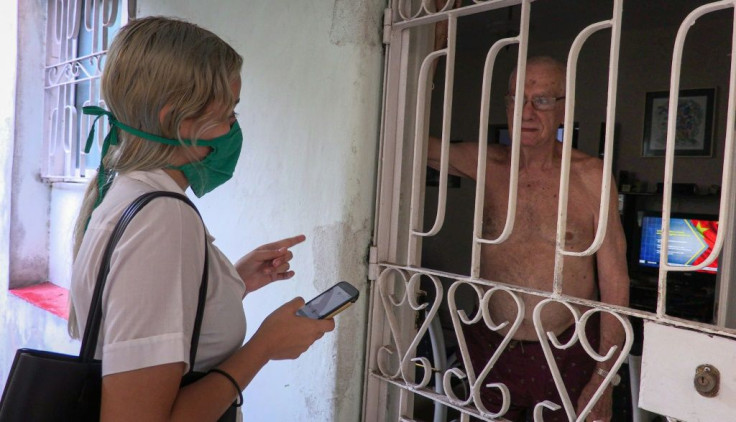
"We don't have the technology of rich countries, but we have a human personnel that is very qualified, with great solidarity and selflessness," said Caballero Gonzalez.
Door-to-door care is nothing new for Cubans used to family doctors who have "always done the rounds... to look for any type of transmittable illness."
Over the past two weeks, rounds have increased in order "to reach 100 percent of the population in as little time as possible," she said.
Medical students have joined the national effort because Cuba has an abundance of them, including thousands of foreigners attracted by the country's 25 medical faculties and the prestigious Latin American School of Medicine (ELAM).
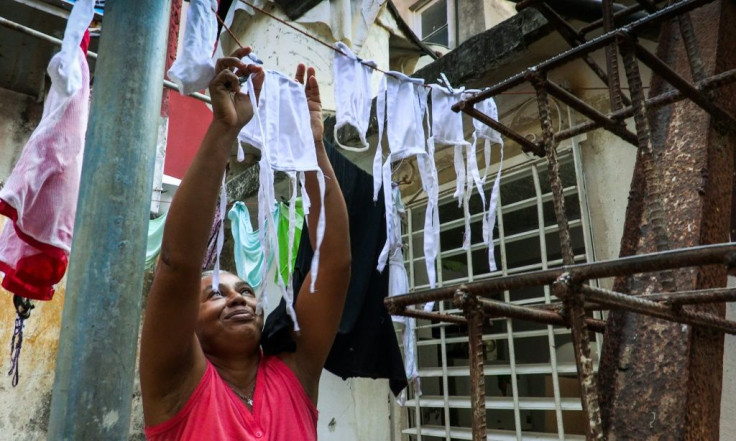
"We're already used to going door-to-door," said second-year student Susana Diaz, 19.
"There's always a time around September-October when we do home visits for dengue. So when the coronavirus situation worsened, the university asked if we'd go door-to-door," she said.
Any suspicious illness -- such as a cough or fever -- is immediately reported to the local medical center.
"Many thank us for what we're doing," Diaz said.
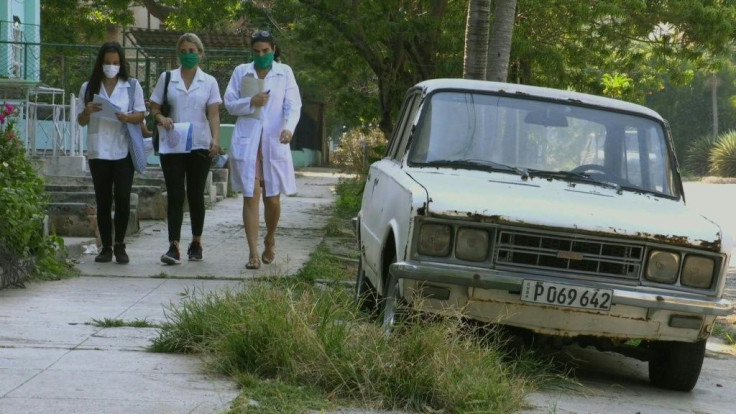
Doctors are "much loved" in Cuba, said Maite Perez, 30, after a visit by one of the students.
"I'm really happy they're looking after our health," she said.
Perez is taking health precautions seriously: She keeps a mop at the front door to clean her shoes, categorically washes her clothes after returning home and wears a mask every time she leaves.
There's just one rule that's proving painfully hard to adhere too: no hugging or kissing.
"I just want to hold my mother and kiss her, to squeeze her... but we're not allowed to," Perez said.
For Carlos Lagos, 83, watching students file past his door has become the new norm.
The students ask "if I feel bad, if I have a fever, how I look after myself," said Lagos, standing at his door bare-chested due to the heat.
"So far I feel fine and I hardly go out," said Dolores Garcia, 82, from behind the gate to her apartment. She's delighted to have a face mask.
"Someone who loves me a lot brought it to me," she said.
Cubans are used to going without basic necessities -- there's often a lack of soap, for example.
Instead of a hydroalcoholic hand sanitizer, Cubans have been using a chlorine solution to wash their hands.
With a lack of medical face masks, many have made their own from cloth, including Marina Ibanez, a 56-year-old kindergarten employee.
"When I saw that people were walking around without masks... I got to work making face masks for people," she said.
Although she had no experience, she has already made 50, which she distributed to neighbors.
"It's not rocket science," Ibanez said.
© Copyright AFP 2024. All rights reserved.





















